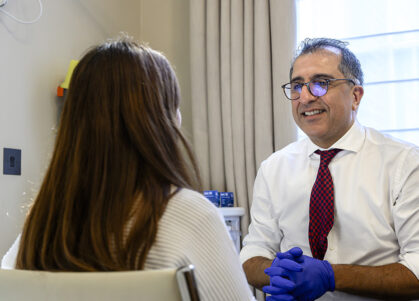Charlotte Chilton’s Journey with Trigeminal Neuralgia
For years, Charlotte Chilton, star of BBC’s The Traitors endured the debilitating pain of trigeminal neuralgia—so severe that she reached a point of despair. She describes the condition as the “suicide disease,” a term used to reflect the unbearable suffering it can cause.
The pain, often excruciating, typically affects one side of the face but can, in rarer cases, impact both. Charlotte underwent brain surgery, but her recovery was further complicated by a car accident, forcing her to relearn basic skills.
Her resilience and determination to rebuild her life are remarkable, as is her willingness to share her experience. Among the media outlets she spoke to was the Express, which sought expert insight from Professor Shakib to help shed light on the condition.
Professor Shakib’s Expert Insight on Trigeminal Neuralgia
Professor Shakib provided a response to raise awareness of trigeminal neuralgia and the treatment options available to those suffering from the condition.
He acknowledged the severity of the disorder, stating: “Trigeminal neuralgia is probably the most excruciatingly painful condition I have ever encountered as an oral and maxillofacial surgeon.”
Patients have described the pain to him as feeling like “a high-voltage electric shock”, “someone pressing a red-hot iron against my face”, or “a red-hot nail being driven into one area of my face.”
Recognising the Symptoms
As with many conditions, early diagnosis can make a significant difference. Symptoms may include sudden, intense, shooting pain affecting one side of the face. These episodes can be triggered by everyday activities such as touching the affected area, applying makeup, shaving, or brushing teeth.
Treatment and Pain Management
Professor Shakib advised on available treatments, explaining: “During acute episodes, I usually provide a long-acting local anaesthetic injection to the affected nerve branch, offering 8 to 12 hours of relief.”
For long-term management, he highlighted the role of medication: “Trigeminal neuralgia is often treated with medication. An anti-epileptic drug called Carbamazepine is commonly effective, though alternatives such as Pregabalin and Gabapentin may also be used.”
In cases where medication is insufficient, surgical treatments are available. However, these procedures carry risks and should be carefully considered in consultation with a specialist.
Finding The Right Solution
Trigeminal neuralgia is a condition where expert diagnosis is crucial—not only to identify the underlying cause but also to determine the correct dosage of medication when prescribed. While long-term medication may be necessary, it can often provide effective relief.
Trigeminal neuralgia pain can subside for long periods, but these pain-free intervals often shorten over time or develop into persistent, throbbing sensations.
Those living with trigeminal neuralgia deserve proper support, and Charlotte Chilton’s efforts to bring the condition into the public eye deserve recognition. By raising awareness, she is helping countless others who may be suffering in silence.
